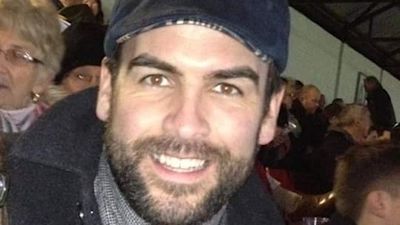Dad who thought seizures were caused by stress turned out to have deadly brain tumour

A father-of-two who dismissed his seizures as stress-related turned out to have a deadly brain tumour.
RAF engineer Anthony Hard, known as Ant, from Newport had initially kept his seizures a secret from his family and put them down to his busy lifestyle and "over-doing it" at the gym. But doctors later discovered that they were a sign of something more serious.
Ant went on to be diagnosed with a low-grade glioma in 2011, just eight days after the birth of his second child. He died in 2015 at the age of 36, leaving behind his wife and two children.
His younger brother, Michael Hard, is now dedicated to fundraising for research into a cure for the illness.
“I always looked up to Ant, and I even followed him into RAF, and became an engineer just like him,” Michael said.
“My mum called me to tell me what had happened to Ant and that he had been diagnosed with a brain tumour.
"It was shocking, but my brother and I were very similar in that we both had a positive outlook and would look for a solution when faced with a problem.”
Ant suffered his first major seizure while he was on tour in Afghanistan in 2011. After a second seizure upon his return home, a hospital scan revealed a mass on Ant’s brain.
Despite two operations, radiotherapy and chemotherapy treatment, Ant’s tumour returned more aggressively than before and was found to be incurable.
“We were told he had less than a year to live.
“I remember looking at Ant and he looked defeated, far from his usual upbeat self and that was a moment when it all became real,” said Michael.
Brain Tumour Research says brain tumours are an "indiscriminate" disease, which kills more children and adults under the age of 40 than any other cancer.
But the charity says research into brain tumours has historically received just 1% of the UK national spend on cancer research.
Michael will lead the seventh annual golf day fundraiser in Cardiff next month to remember Ant and raise money for Brain Tumour Research.
He says that "any donations here can go a really long way to help find a cure for this cruel disease."